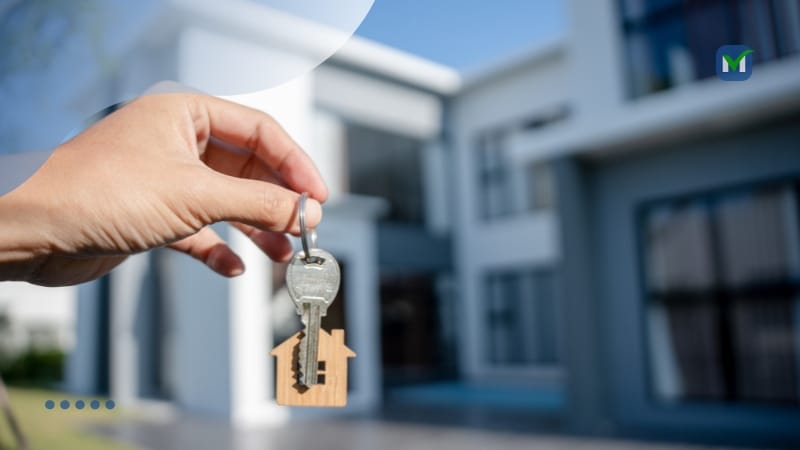Advertisements
Want to buy your home but have no idea where to start? Today, you will know exactly the way! Just apply all the tips for buying first home.
There are many tips for buying first home on the internet, but many cannot be put into practice immediately. This is not the case with the tips we have selected! We have filtered the best advice on the market and selected only those that can be put into practice by you today.
At the end of this article, you will have total clarity about the path you should follow to buy your home. Just follow all the tips for buying first home, let’s go!
1. Save money (Tips for buying first home)

When planning to buy a house, always look at all the costs you will have, from small expenses to recurring expenses. Most people focus on the value of the home. However, there are additional expenses that impact the budget.
Let’s now see the main costs you will have with the house in the beginning:
Advertisements
- Down payment: The amount depends on the type of financing and the requirements of the lender. Some loans require a 3% down payment. For example, for a $300,000 home, a 3% down payment equals $9,000. However, this is the average, depending on your score, the entry may be higher.
- Closing costs: These are fees and expenses necessary to finalize the financing of the property. They vary between 2% and 6% of the value of the credit. Thus, for a $1,000,000 property, closing costs can be between $20,000 and $60,000. Don’t worry, you can save money at this stage, just negotiate with the seller;
- Moving: you should save a good amount for moving. The cost varies greatly depending on the distance, but the average is $2,500.00. Furthermore, after acquiring the property, you will also spend on renovations, furniture purchase, among other unexpected expenses.
Therefore, saving money for these expenses is crucial and helps you avoid debt by fulfilling the dream of having your own home.
2. Improve your credit
At first, your credit score defines your home! Mortgage approval and the interest rate offered is directly related to your credit.
It’s quite simple, the higher the score, the better the financing conditions. Thinking about getting a comfortable property, it must have a good score (it goes from 700 to 1000 points).
Advertisements
First of all, see how much credit you have today, sites like Experian, Equifax and TransUnion show you your score today. If the result is below 700 points, the following tips will help you improve this:
- Pay off your debts: Payment history is very important in scoring. Those who pay the bills late will always have bad credit,
- Don’t close old accounts: doing so can lower your score. The credit available when compared to the amount used influences its history;
- Avoid new accounts: During the process of applying for a mortgage, opening new cards or financing will get in the way of buying the house. In fact, the ideal is to eliminate debt.
Therefore, taking care of your score represents savings in the long run. You don’t need big changes, small practices already help you have a high score.
3. Look for mortgage options
When financing a property, compare mortgage options. Each type has specific entry and eligibility requirements, let’s look at the main types:
- Conventional mortgages: this is the common one. Its main characteristic is that it has no government guarantee. Some volt options require only 3% down payment. For this reason it is the most sought after;
- FHA Loans – You will have insurance from the Federal Housing Administration, this one. Because of this, the down payment is higher, with an average of 3.5% of the value of the house/apartment;
- USDA Loans: Protected by the U.S. Department of Agriculture. Therefore, it serves farmers, mainly. Its main benefit is that it does not require entry (at first).
- VA loans: Intended for military personnel and veterans. This credit is guaranteed by the Department of Veterans Affairs. It is common for them to dispense with the entrance and have very attractive conditions.
Furthermore, you should worry about the payment term. The most common choice is to pay off the house in 30 years, there is a fixed rate. There are also other options, for example 15-year credits, in these possibilities the interest rate is lower, but the installment will have a high value.
Undoubtedly, understanding the different mortgage options will help you decide and ensure that the financing you choose fits your budget and financial goals.
4. Attend the interest (Tips for buying first home)

Plan to search for mortgage lenders and compare three to five different budgets. Doing so can save you thousands of dollars in interest over the life of the loan.
The Consumer Financial Protection Bureau recommends requesting loan estimates for the same type of mortgage from multiple lenders to compare costs, including interest rates and potential origination fees .
Lenders may offer the opportunity to purchase discount points , which are fees that the borrower pays upfront to reduce the interest rate. Buying points can make sense if you have money and plan to stay in the house for a long time. Use a discount points calculator to decide.
In a buyer’s market, some motivated sellers may offer to pay some or all of the buyer’s points to close the deal. Thus, you will always find real estate investment opportunities.
5. Define the type of house you want
Choosing the right type of home goes far beyond price. The ideal property should align with your lifestyle, needs, and budget.
At first, buying a house already built is cheaper. However, building is not a bad option, as you can make the house of your dreams.
Consider condominiums or townhone, the price is usually more affordable in regions away from the center., that is, residential neighborhoods.
Furthermore, prefabricated houses are great options if your budget is tight. However, to finance this type of house you must pass a series of legal requirements.
The last options are properties that need repairs. Therefore, they are sold for a lower price per square meter. However, it is good to have the opinion of a consultant to ensure that the cost of the renovation is within what you can spend.
Conclusion (Tips for buying first home)
When thinking about tips for first-time home buyers, without a doubt the main one should be to save money, saving as much money as you can. In the meantime, you should also work to increase your score.
Buying a house is a long-term project and the decision cannot be made on impulse. With this in mind, you need to consider all mortgage options, knowing the interest rates charged.
Finally, you should choose the house you want to live in well, taking into account your lifestyle, what you like to do and especially how much you are willing to spend to have your own home.





